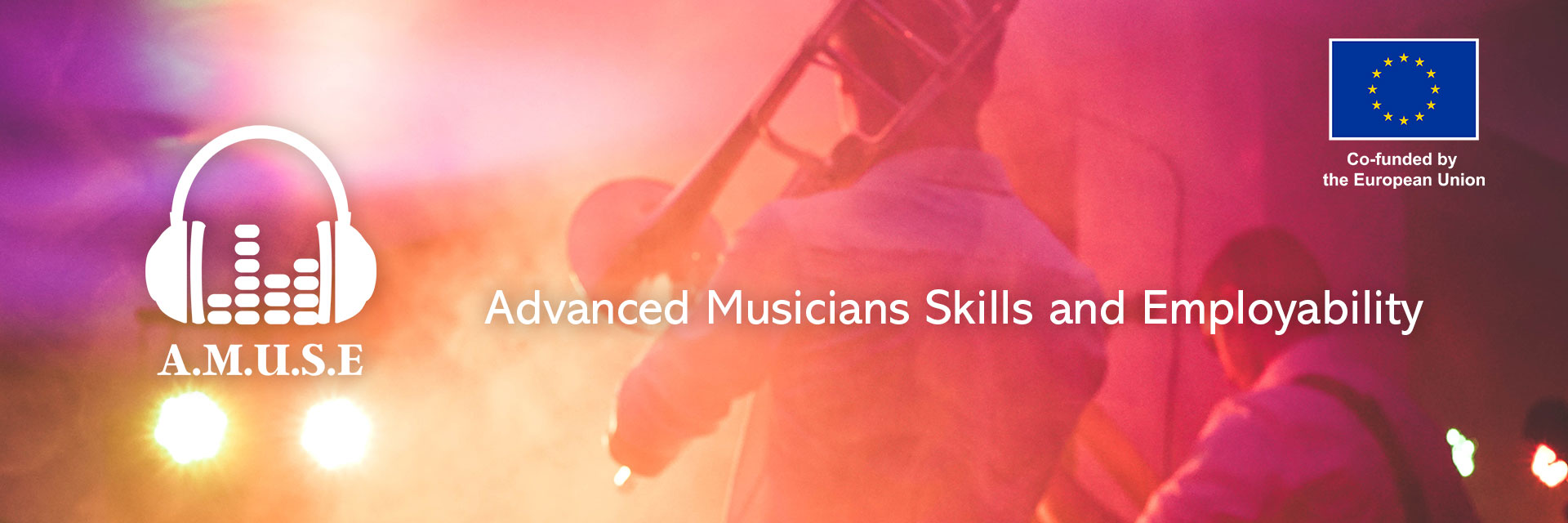
Project description
AMUSE
An educational pathway towards the advancement of music professions, embracing the global challenges posed by digitization, environmental concerns, and inclusivity.
THE SCENARIO
AMUSE focuses on aspects that bring together music and artistic creation, environmental sustainability and technological innovation. These three aspects constitute areas of interest for the Partners both with regard to the professional development of their staff and their circuit of collaborators and professionals in the music sector and, more broadly, to the role that culture and creativity (music, specifically) play in the contexts and actions of the so-called ecological transition.
As to new technology aspects, it is evident that the digital revolution has disrupted the very foundations of the music business, from creation to distribution and musicians have embraced social networking to interact directly with fans.
It has to be highlighted that the European Parliament stressed the importance to support vocational training programs and initiatives for the career development of all authors, performers and cultural creators.
This, in particular, to support them in acquiring digital, entrepreneurial and other skills in order to benefit from digital opportunities to promote their work and to widen collaboration other artists. [The situation of artists and the cultural recovery in the EU – European Parliament resolution of 20 October 2021 on the situation of artists and the cultural recovery in the EU (2020/2261(INI)]
As to environment, the Music Climate Pact, an agreement set up in 2021 by the UK’s Association of Independent Music (AIM) and the British Phonographic Industry (BPI), an association representing record companies, key players in the music industry are called upon to report back to combat the climate crisis through their activities, reducing greenhouse gas emissions, raising awareness about the climate issue and dialoguing with audience about the environmental impact of the music industry.
THE OBJECTIVES
Objective 1: AMUSE aims to develop an “Integrated VET Transformation Plan” for the music professions sector, also focusing on vocational education for trainers and experts and digital-creative workers. The plan supports upskilling and reskilling actions, valorising informal and non-formal learning experiences. It is implemented by project Partners and includes follow-up strategies for VET activities in the music sector and for transnational mobility.
Objective 2: Partners collaborates in designing curricula and learning outcomes accompanying processes of professionalization and innovation of education and training practices in music sector. They will design, develop, deliver, and validate modular sets of skills organized into units of competence. Operationally, the commitment is to outline two profile-courses: upskilling and reskilling, with a-40 hour pathways, including practical activities and workshops. Partners will design the curricula, sets of basic training and learning materials (i.e friendly syllabus, educational mashup).
One expected achievement is the set up, at national level, of groups of upskilled or reskilled experts, professionals, workers and creative people able to contribute to the growth of music sector. Special attention is given to the participation of people with special needs.
Objective 3: Recognizing the importance of advanced musicians’ skills and the richness of informal and non-formal practices, AMUSE Partnership proposes to be an open participative learning platform, connecting music schools, VET providers, creative and cultural industries (CCIs), acting as an education hub and organizing physical and online collaborative forums.
Main project activities
- PARTICIPATORY CURRICULUM DESIGN
- COURSE PILOTING
- CREATIVE & MULTIPLIER WORKSHOPS
- PROFESSIONAL & COMMUNITY EVALUATION
PARTICIPATORY CURRICULUM DESIGN
Partners set up multidisciplinary core groups to gather experiences and best practices in the music professions sector. These groups will identify one role model for each country involved in the project. Additionally, the project seeks to develop a curriculum and study plan framework. This framework will define a template and identify baseline learning outcomes.
- It will also transparently incorporate non-formal activities, including self-observations and peer reviews from partners. The national groups will address the professional, digital, and transversal needs of the music sector, focusing on community-based and environment-oriented aspects.
- In a following phase Partners will examine the background strategies and scope of European programs related to the music sector, particularly “Music Moves Europe.” They will analyze the strategies and objectives of these programs in order to inform their own curriculum development efforts.
- A pilot curriculum with an essential theoretical model will be outlined, along with a pilot plan. These will be shared with stakeholders, musicians, and professionals from related fields. Each partner will conduct internal workshops involving senior musicians and young musicians to gather insights into the experiences of established professionals and the aspirations of young or aspiring musicians.
- Furthermore, a template for the Integrated Evaluation Scheme and Handbook of the Musician Career will be outlined. This evaluation scheme and handbook will provide a comprehensive framework for assessing and guiding musicians’ careers.
- The activities outlined in the project will be carried out by each partner in their respective countries.
COURSE PILOTING
Partners collaborate to define a common operational delivery model, which will then be customized at the national level. They will subsequently launch a call for participation for pilot courses, each country partner organizing a national edition. The delivery of the courses will consist of a 40-hour program, supplemented by a professional project work that involves creating and producing music outputs.
- The curriculum covers three key themes: understanding and managing author’s rights and copyright, embracing technological advancements in music, and navigating the music industry while developing a sustainable approaches.
- In the first theme, participants explore the entire author’s rights and copyright value chain. They also gain insights into working with publishers, developing a back catalog through streaming platforms, and building strategies with music library companies. The future of author’s rights and copyright, including the role of blockchain and footprinting, is also explored.
- The second theme focuses on embracing technological advancements in music. Participants discover understand the concept and projected role of artificial intelligence in the industry by 2030, and learn to compose in a binaural approach for virtual reality and augmented reality experiences. Additionally, participants learn how to build their careers within the context of a more sustainable world.
- In the third theme, participants gain an understanding of the general music industry ecosystem. They learn to design their musician brand through effective storytelling, marketing strategies, and direct-to-fan operational approaches. They define a business model for their careers, considering the diversification of activities, and learn to balance artistic endeavors with business activities effectively.
There will be a formal validation of the pathways, including evaluation and assessment of the participants’ learning outcomes. The results will be formalized to recognize the achievements and progress made by the participants.
CREATIVE & MULTIPLIER WORKSHOPS
Participants in the pilot courses will receive mentoring support from the staff and experts of the partner organizations. They will actively engage in organizing awareness-raising and multiplier events aimed at other musicians, music professionals, and the community. During these events, participants will share their experiences, pitch their skills, and foster a sense of community. These events are finalised in workshows, which may include additional side-show moments to enhance the experience.
- The activities encompass workshops that serve as stages in an educational and professional pathway. This pathway includes transnational online moments where musicians and vocational education and training (VET) experts from different countries come together to share and discuss the results of the national phases. Through these exchanges, participants can benefit from diverse perspectives and insights.
- The process also incorporates an observation, reflection, and educational shadowing activity conducted by educators/trainers. It also explores the perceptions of musicians regarding their roles and how communities perceive them. Furthermore, participants will explore other professional areas that musicians can engage in, such as being an educator, animator, facilitator, or mediator. These roles, contexts, skills, and professionalism aspects will be defined through the transparency of the experiences gained during the work process.
In addition to the events and workshops, participants will contribute to the establishment of an online transnational VET forum dedicated to music integrated professions. This forum will serve as a platform for ongoing discussions, knowledge exchange, and networking among participants and experts. Furthermore, an open memorandum will be promoted online, inviting others to join and support the initiative.
PROFESSIONAL & COMMUNITY EVALUATION
Partners, throughout the project, actively collect information from the target groups and stakeholders, ensuring their direct involvement in the process. They conduct shadow activities to identify and highlight the specific skills and good practices that emerge from informal and non-formal running activities. This information is then compiled and documented in the form of “practices tables”, which serve as the foundation for the development and drafting of an integrated handbook for musicians and music professionals.
- The handbook aims to address the various aspects of the music profession in a comprehensive and cross-cutting manner. It covers technical skills, digital reskilling and upskilling, community-oriented roles, and environmental attitudes. Each of these areas is explored, providing guidance and resources for individuals to develop their competencies in these domains. Additionally, the handbook includes a dedicated chapter on the validation, certification, and recognition of learning outcomes. This ensures that the skills and knowledge acquired by individuals through the project can be properly acknowledged and validated.
- To further enhance accessibility and engagement, an online companion will accompany the handbook. This platform will allow interested individuals to submit requests to the project partners regarding opportunities for upskilling, reskilling, and mobility programs. Overall, the procedural scheme implemented by TUCEP ensures active participation from target groups and stakeholders, incorporating their perspectives and experiences into the development of the integrated handbook.
Main outcomes and results
- Set up of multidisciplinary groups including music professionals and workers who converge on the growth of musicians’ integrated skills, known as MUSE. These groups aim to facilitate collaboration and consolidation among diverse professionals in the music industry. An annual context for these groups to meet is the International Piano and Accordion Festival organized by IAC, providing a platform for exchange and cooperation.
- A toolbox with a comprehensive set of skills, integrating professional, transversal, digital, and community-based learning outcomes. This toolbox serves as a valuable resource for individuals looking to develop and enhance their skills in various areas of the music profession.
- The drafting of an education and training toolbox that encompasses a critical selection of learning outcomes based on the “critical needs” identified by the project partners. This set includes study plan pathways that outline the content, methodology, and essential educational resources required for effective learning.
- To ensure the recognition and validation of learning outcomes, the project aims to develop a recognition tools that also value non-formal experiences. This approach acknowledges the diverse learning contexts and experiences of individuals, promoting inclusivity and a comprehensive understanding of their skills and competencies.
- The project entails the development of a set of validated learning outcomes organized within an education curriculum. These learning outcomes are structured around three main areas, accompanied by corresponding methodologies, study plans, and an educational base kit. This comprehensive curriculum serves as a guide for individuals looking to acquire and enhance their skills in the music sector.
- Groups of musicians, music sector workers and professionals, increasing their skills not only expertise in their respective music disciplines but also competencies as trainers’ trainers to effectively transfer their knowledge and skills to others, serving as mentors and facilitators in the learning process.
- Moreover, these groups play a vital role in enhancing their organizations as vocational education and training (VET) providers, particularly in the field of music activities and professions. They contribute to the development and improvement of training programs and courses, ensuring that they meet the needs and demands of the industry. They collaborate to strengthen the capacity of their organizations to provide high-quality education and training opportunities in the music sector.
- Each Partner country aims to organize an event- workshow. Ideally, these events will be connected to their institutional activities , creating a synergistic and integrated experience. The workshows serve as platforms for showcasing the project’s activities and outcomes, providing participants with practical, hands-on learning opportunities.
- During these workshows, music performances can be staged, showcasing the creative and professional scenarios in which they were produced. Excerpts of the event will be diffused through audio or video platforms and application. This allows for wider dissemination of the work and provides insight into the creative process.
- An important objective of the workshows is to generate increased interest in the musician profession and music sector professions. By actively involving attendees and participants in the AMUSE workshops, the project aims to promote and highlight their professional profiles.
- Additionally, through these activities, the project partners will establish “affiliated groups” comprising music practitioners, educators, trainers, and individuals interested in the project’s topics. These groups create a network of like-minded professionals and enthusiasts, facilitating ongoing collaboration and knowledge sharing.
- The drafting of the Integrated Scheme and Handbook serves as a catalyst for fostering multidisciplinary collaboration among the project partners and sector organizations. This collaboration is already in progress, and the handbook provides a unique opportunity to further consolidate and enhance the efforts. By working together on the handbook, the partners can engage in specific VET convergence activities, leveraging their diverse expertise and perspectives.
- The handbook serves as a critical output for the “integrated VET transformation plan”. It has the potential to attract sector operators and workers, not only from within the partnership but also from outside, thereby expanding the reach and impact of the AMUSE network. The comprehensive and practical information contained in the handbook will be valuable to individuals and organizations seeking to improve their understanding of musician and music sector skills.
- Additionally, the handbook serves as a critical output for the “integrated VET transformation plan.” It has the potential to attract sector operators and workers, not only from within the partnership but also from outside, thereby expanding the reach and impact of the AMUSE network. The comprehensive and practical information contained in the handbook will be valuable to individuals and organizations seeking to improve their understanding of musician and music sector skills.
AMUSE CLUB
AMUSI CLUB is transnational network of musicians, trainers, teachers, and music professionals that collaborates and endorses AMUSE projects, participating in events and meetings such as Focus Groups, Knowledge Circles, and Side Events. The aim of AMUSE CLUB is to expand participation and promote dissemination of the project’s outcomes. Members of the network can contribute also with videos, interviews, essays etc, thereby enhancing engagement and knowledge sharing within the AMUSE community.
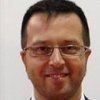
Gianluca Bibiani
President I.A.C.
He is the President of the Italian Accordion Culture. He is an accordionist.
Gianluca is also the president of the Italian music publisher Ars Spoletium.

Dionisio Capuano
Project Manager
He is the President of the Italian Accordion Culture. He is an accordionist.
Gianluca is also the president of the Italian music publisher Ars Spoletium.

Labanauskas Mindaugas
Director of Kauno 1-oji muzikos mokykla
He is the President of the Italian Accordion Culture. He is an accordionist.
Gianluca is also the president of the Italian music publisher Ars Spoletium.
Marina Lerch
Happy Music Factory (L'Ecole de Musique)
He is the President of the Italian Accordion Culture. He is an accordionist.
Gianluca is also the president of the Italian music publisher Ars Spoletium.

Michela Musco
Music Teacher and Singer
He is the President of the Italian Accordion Culture. He is an accordionist.
Gianluca is also the president of the Italian music publisher Ars Spoletium.
Project profiles
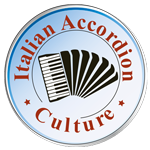
The Cultural Association Italian Accordion Culture – Premiere Voting Member of the CIA (Confédération Internationale des Accordéonistes) Imc Unesco – established in Spoleto in January 2001, is an organization dedicated to the recovery of the musical traditions of the Spoleto Valley and, more generally, of the whole central Italy, in all its forms and facets. Over the years, studies and research have been carried out, even from house to house, in order to document as many testimonies as possible concerning the popular song and the centrality and importance of some musical instruments in particular (accordion and / or accordion diatonic, guitars, cymbals and various percussions). Educational goal is to preserve and pass on to future generations, dedicating time and resources to the education of the current generation, all the cultural heritage collected, while enriching it with further similar experiences at an international level.
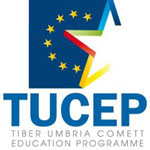
Tiber Umbria Comett Education Programme is a non-profit association composed of twelve Italian universities and numerous businesses and public entities. It was established in 1992 within the framework of the COMETT community program, which focuses on cooperation between universities and businesses for research, innovation, and technology training.
The mission of TUCEP is to foster and develop collaboration between universities and the world of work through research and training projects aimed at promoting innovation and quality in education and training.
The organization strives to promote social inclusion, entrepreneurship, and European values at the regional, national, and European levels.
TUCEP’s main activities include organizing and managing national and European-level training courses for youth and adults, including trainers, teachers, and students.
HPF works with a group of experienced professionals in the main music areas of teaching and learning. The music school is a team of qualified teachers. To fulfill our mission which is to advance our students, we are very attentive to the recruitment of our teachers. School develops tailor-made courses and follow-up and has experiences in online teaching approaches
Organisation uses innovative music Pedagogy that is developed according participatory method, with a learner-centered and participatory approach and trusting relationship. At the basis the importance and seriousness necessary to the contractual relationship for which learners experience trustful learning environment, efficiently as possible and in a friendly atmosphere
Two main departments: Chatou music school (4 rue de la Paroisse – 78400 Chatou) and Happy Music Factory Suresnes music school 18 bis rue Émile Duclaux92150 Suresnes.
Website | Facebook page
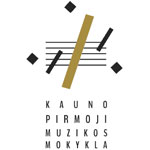
Kaunas 1st Music School, founded 73 years ago, is one of the oldest music schools in Lithuania and one of the largest interms of the number of teachers: 167 teachers of various instruments, currently teaching more than 1,217 students. As many as 23 teachers have obtained the highest qualification category for a teacher expert.
Kaunas 1st School of Music is a center for the development of musical talents and intelligence of creative people.
It offers the opportunity to learn to play piano, accordion, guitar, violin, cello, traditional Lithuanianfolk music instruments, percussion instruments and wind instruments (such as flute, saxophone, clarinet, horn, tuba, trombone, trumpet). In addition to organizing eight national competitions, Kaunas 1st Music School organizes well-known international music competitions every year: “Ascoltate”, “Trofeo musicale”, “Olimpo musicale”, “Musica pianoforte”, “XX century music”.
Library
Articolo Library 2
TipologiaQui ci va una breve descrizione
Articolo Library 1
TipologiaQui ci va una breve descrizione

The European Commission support for the production of this publication does not constitute an endorsement of the contents which reflects the views only of the authors, and the Commission cannot be held responsible for any use which may be made of the information contained therein.
